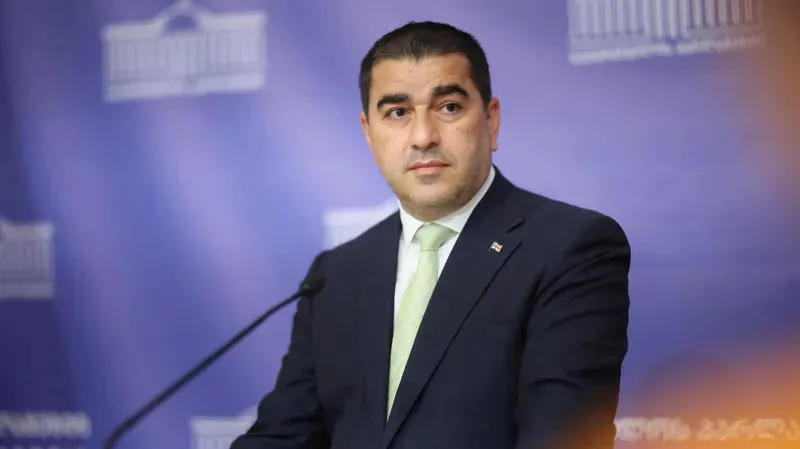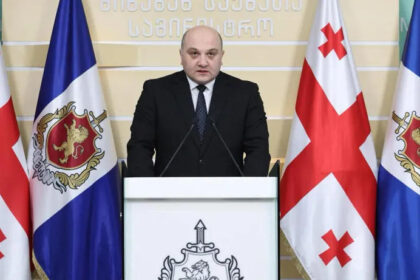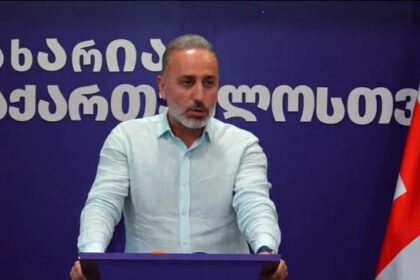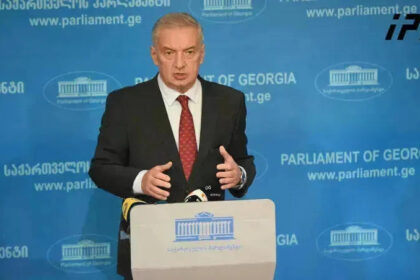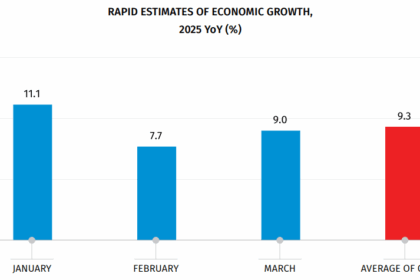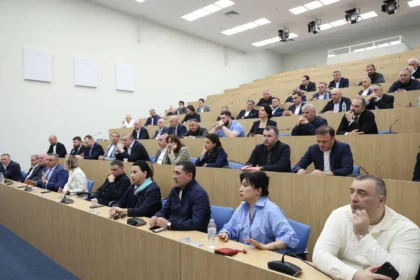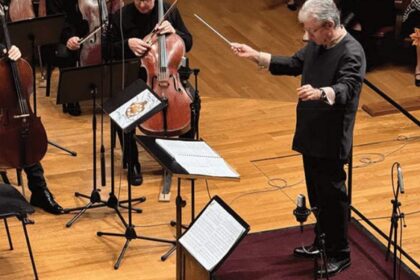**Georgian Parliament Speaker Speaks Out Against Foreign Influence**
In a recent statement, Georgian Parliament Speaker Shalva Papuashvili expressed his disappointment and frustration with the events that unfolded near the parliament building on April 9. Instead of acknowledging Russia’s involvement in the violence, the statements made yesterday pointed to a “foreign force” as being responsible.
Papuashvili characterized the events as “hysteria,” orchestrated by foreign powers with funding from organizations such as Transparency International and Sapari. He claimed that these groups are more interested in promoting a simplistic “Russia-Europe” narrative, rather than acknowledging the complex history of Georgia’s struggle for independence.
**A History Lesson**
Papuashvili took a moment to remind everyone of the events that took place on April 9, 1989. He recalled the Soviet army’s brutal suppression of the national movement and the killing of innocent civilians. The Parliament Speaker emphasized that this was not just a historical event, but a reminder of who was responsible for the bloodshed.
**The Role of NGOs**
Papuashvili also targeted certain NGOs operating in Georgia with foreign funding. He named Transparency International, Sapari, Shame, and Ms. Lomjaria’s organization as examples of groups that have been instrumental in spreading hatred and contempt among the population. The Parliament Speaker called on these organizations to take responsibility for their actions and reveal their funders.
**A Commentary**
The statement made by Papuashvili highlights the complex dynamics at play in Georgian politics. The country’s struggle for independence is still a sensitive topic, and the involvement of foreign powers can be seen as an attempt to manipulate public opinion. By not acknowledging Russia’s role in the violence, these groups are attempting to simplify the narrative and avoid accountability.
**A Deeper Analysis**
The statement also raises questions about the influence of NGOs on Georgian society. While these organizations often claim to promote transparency and human rights, their involvement in funding certain groups can be seen as a form of external control. By promoting a simplistic “Russia-Europe” narrative, they may be attempting to avoid discussing the complexities of Georgia’s history and its ongoing struggles with foreign influence.
Read More @ www.interpressnews.ge




